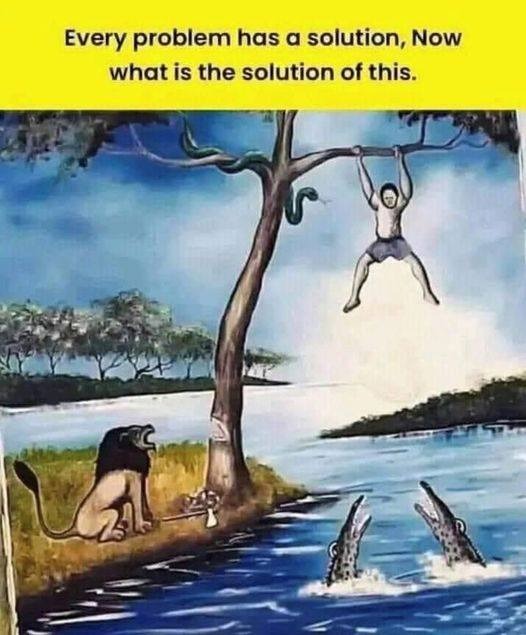Life is full of unexpected challenges, and sometimes, a single decision can mean the difference between survival and failure. Imagine a scenario where someone’s life depends on their ability to think critically and make the right choice. Can you step into their shoes and figure out what needs to be done for them to stay alive? This isn’t just a question—it’s a riddle designed to test your problem-solving skills and your ability to think outside the box. Do you think you’re up to the task? Give it your best shot, and when you’re done, don’t forget to share it with others to see how they approach the same challenge!

The Solution
Riddles like this one are meant to get your brain firing on all cylinders. But before jumping straight to the answer, take a moment to reflect. The process of thinking critically and analyzing the problem is where the real value lies. Whether you solve it or not, the effort you put into finding the answer is what strengthens your mental abilities. And once you discover the solution, it’s not just about getting it right—it’s about the journey that led you there. The “aha!” moment you experience when everything clicks into place is what makes riddles so satisfying.
Why Are Riddles So Important?
Have you ever wondered why riddles have stood the test of time? From ancient civilizations to modern times, riddles have always been a part of human culture. They might seem like just a fun activity on the surface, but in reality, they serve a much deeper purpose. Riddles push us to think critically and creatively. They force us to slow down, pay attention to the details, and connect ideas in ways we might not normally consider. In doing so, they help us sharpen our cognitive skills and expand our mental horizons.
Solving a riddle isn’t just about finding the right answer—it’s about the process of discovery. Each clue challenges us to think in new and unexpected ways. This kind of mental exercise is essential for keeping our brains active and engaged, especially in a world where we’re often overwhelmed by distractions and instant gratification.
The Benefits of Solving Riddles
So, what exactly happens when you solve a riddle? The benefits go far beyond just entertainment. For starters, riddles improve your problem-solving skills. Each time you tackle a tricky question, you train your brain to analyze situations, weigh different possibilities, and come up with logical solutions. This skill doesn’t just apply to riddles—it’s something you can use in your everyday life, from navigating work challenges to making important personal decisions.
Another key benefit of solving riddles is the boost it gives to your memory. When you’re trying to piece together clues, you have to recall information, hold multiple ideas in your head, and connect them in meaningful ways. This kind of mental exercise strengthens your ability to retain and process information, making your memory sharper over time.
Riddles are also great for enhancing your visual-spatial reasoning. This means you get better at understanding how different elements fit together, whether they’re physical objects, patterns, or abstract concepts. For example, when solving a puzzle that involves shapes or sequences, you’re training your brain to see the bigger picture while also paying attention to the smallest details.
And let’s not forget the emotional benefits. Riddles can be a great stress reliever. When you’re focused on solving a challenging problem, your mind shifts away from daily worries and focuses on the task at hand. The satisfaction of finally cracking a tough riddle can even release feel-good chemicals in your brain, leaving you with a sense of accomplishment and a happier mood.
Ready to Take on the Challenge?
Now that you know how beneficial riddles can be, why not put your brain to the test? Take on this life-saving riddle and see if you can figure out the solution. Remember, it’s not just about getting the answer—it’s about enjoying the process and learning along the way. And once you’ve solved it, don’t keep it to yourself. Share it with your friends and family to see how they approach the challenge. You might be surprised by the different ways people think and the unique solutions they come up with.
Riddles are more than just games—they’re opportunities to grow, learn, and have fun. They challenge us to think differently, improve our mental skills, and connect with others through shared problem-solving. So the next time you come across a riddle, embrace the challenge. Who knows? It might just be the spark your brain needs to stay sharp and engaged. And who wouldn’t want to enjoy a little fun while strengthening their mind?





